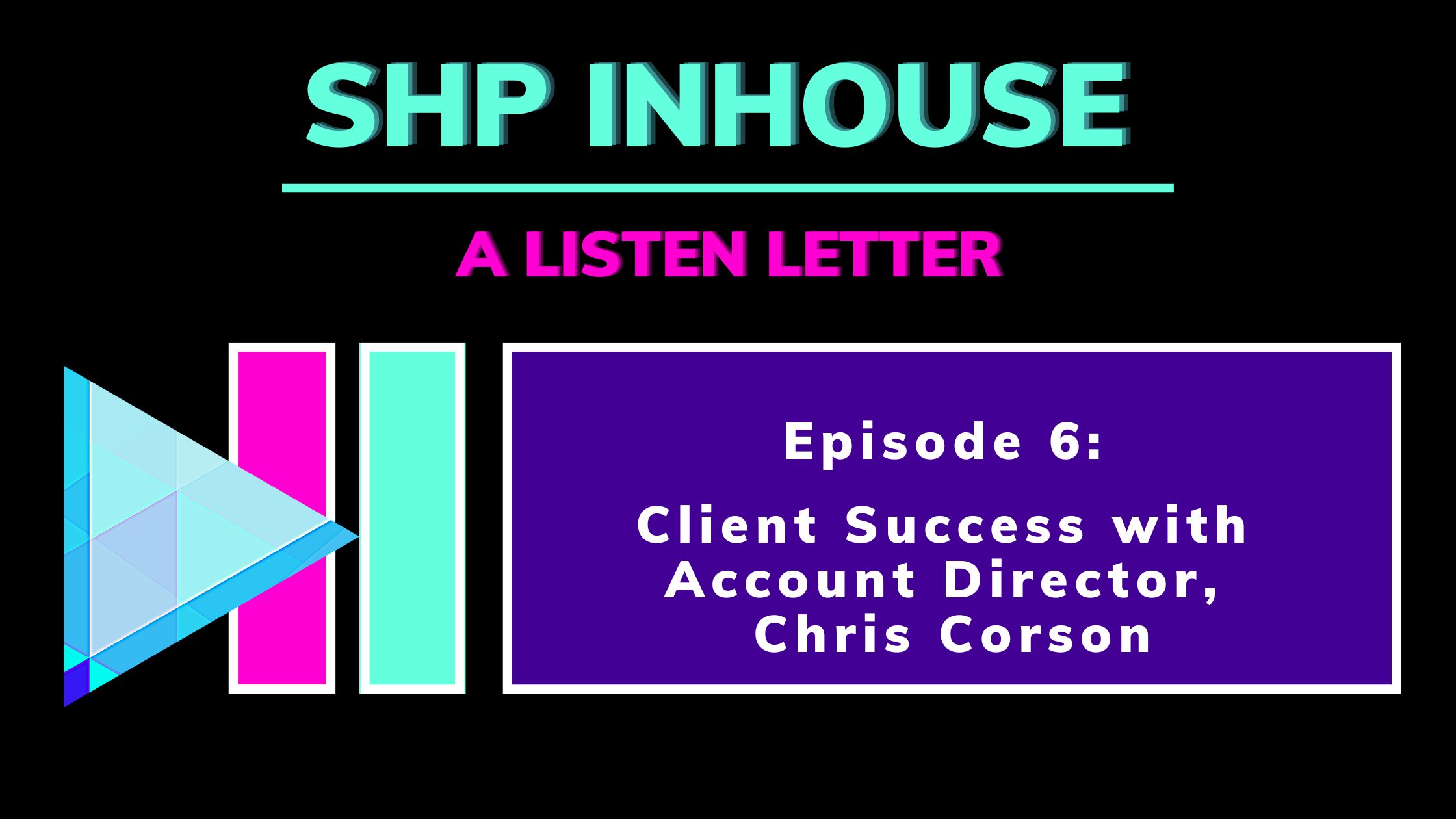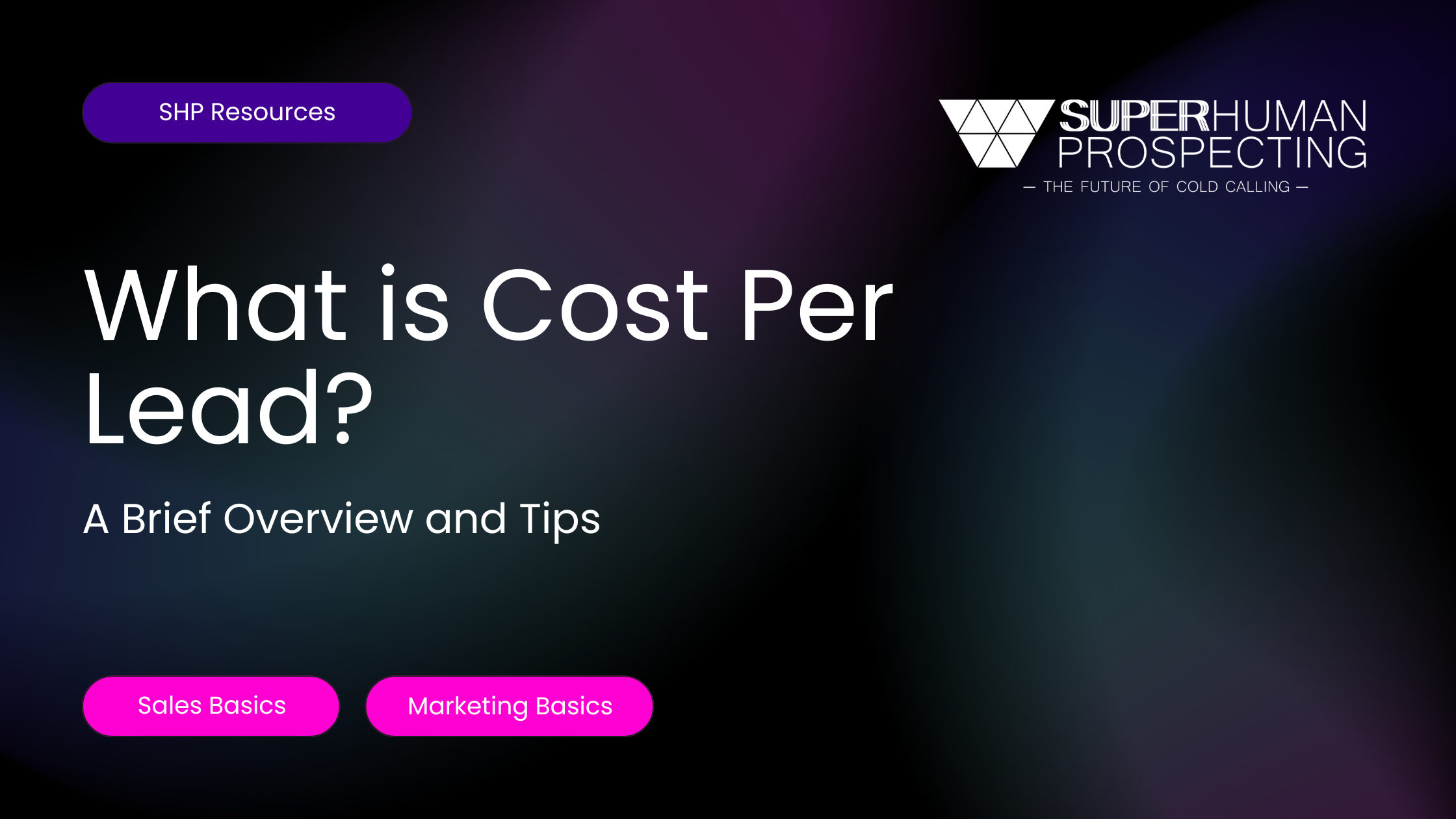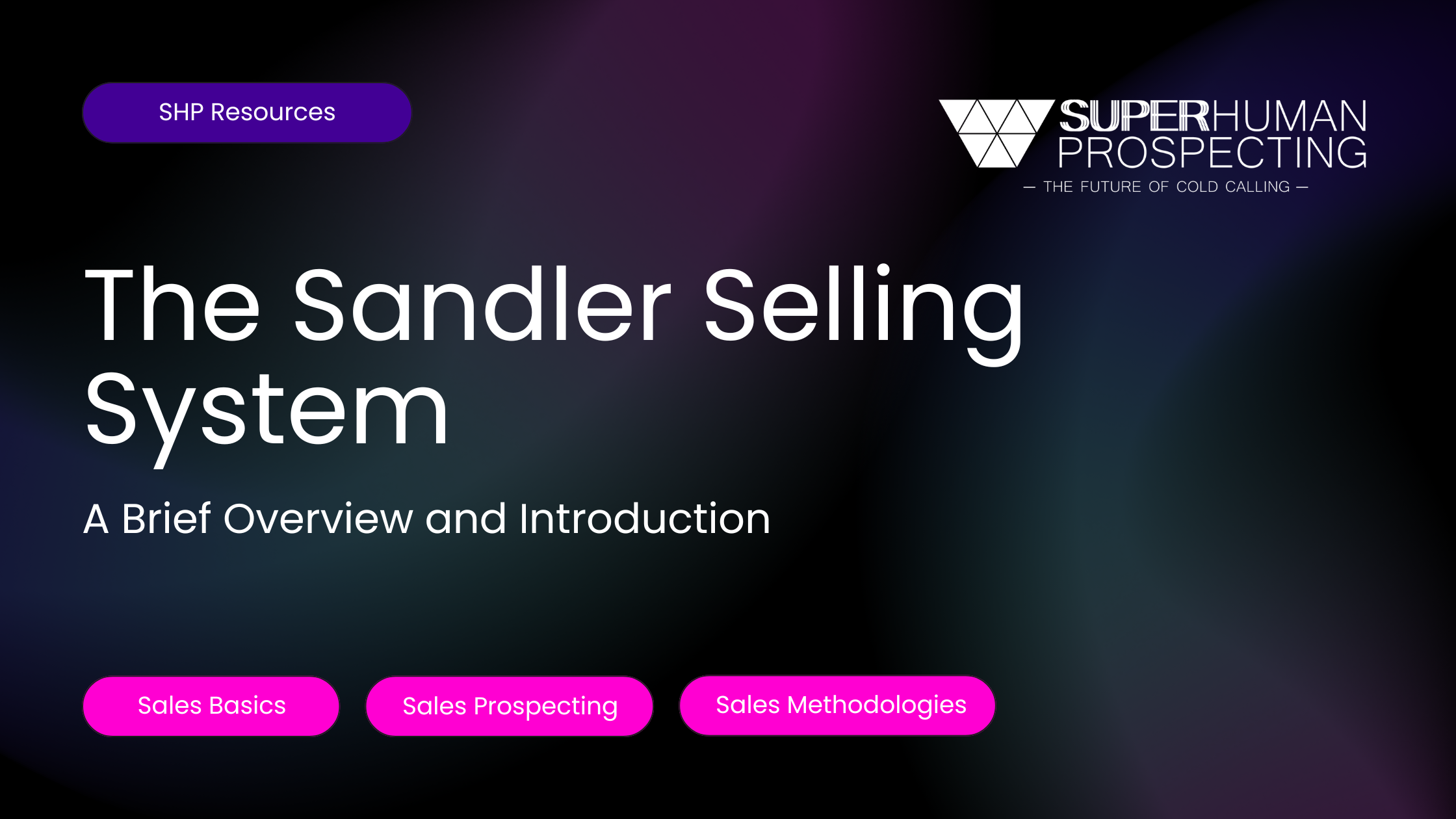Welcome Back to SHP Inhouse, A Listen Letter!
This audio drop is designed for internal team members, clients, past clients, prospective users, and the sales community as a whole to learn about what’s going on with Superhuman Prospecting, internal updates, improvements, and also things, we’re learning to help advance the sales profession and provide education on how to have successful sales conversations in the 21st century. Thanks for listening!
Ryan: Good morning! So, Chris Corson has been with us since early 2020. He jumped on board right before the pandemic hit as a Junior Account Manager. He has now worked through being an account manager here, a Senior Account Manager, and now as our Account Director leading the way for our client success team.
Corson is really working with – not only our clients but our account management team to provide the best experience possible for those folks who use our services. Can you tell us a little more about what it means to manage our accounts?
Corson: Account Managers (and account management in general) take the handoff, usually from an account team – making sure our best team goes out, selling and finding us new clients that we’re going to make calls for. My job as an Account Director is to work with the account management team, onboarding those clients, and working with them through a consultative process to understand their needs, goals, and objectives.
Then we can develop a plan for their messaging, always working hand-in-hand with the client – on a weekly basis – to discuss performance results and the four pillars. Those are the important things that we think about when we’re talking about account management. Asking ourselves, “How does the project look from the client’s perspective?” “Are we serving their needs and are we giving our SDR team what they need to succeed?” “Are they able to get out there and get on the phone and set appointments using the information that we provide to them through our consultative process?”
Our secondary task as Account Managers is obviously to retain those clients as long as possible and help them grow through our services- either adding inside sales or consulting them through the process to make sure we have all the tools in place to be successful for them as an outbound development company.
Ryan: Now, that’s great. Yeah. And I think I think the idea is finding success in all the ways that we can and a lot of times what happens is there is this kind of magnet to results as an end all be all. And one of the things that we’ve learned is that when clients are onboarded, sometimes they’re not necessarily sure of the direct strategy.
They’re looking to us for some of that expertise on how to go about their campaigns. And a lot of times what we have to do is really help educate – not only ourselves on what they do but also the client. That allows us to know what direction we should take on and what improvements we need to make throughout the continuum of sales development.
How important is the process of campaign set up for account management? Is that an important part or is it not as important as, you know, the third, fourth, fifth campaign’s after we’ve had some experience? Give us a sense of how important (or not) the setup is in the very beginning.
Corson: It’s my belief that setup is everything. It’s our first impression with the client. It’s our first opportunity to introduce the process through the scripting and through our kickoff. A kickoff call includes a complete review of an outline and script, the outline they filled out for us prior to them jumping on the call. The goal of our kickoff call is to onboard and learn everything we can about their product and service so that we can develop a script that will succeed in their first campaign.
That’s the foundation that we lay. Every account is that first impression – we build on that relationship with our clients from day one. The impression that the account manager makes on them in the kickoff call goes a long way towards building that relationship and retaining a client long-term.
Ryan: That’s great. How important is it to have client interaction throughout the process? Is that key? Do they put them on autopilot or do they need to be involved at some level for it to be a success? Can it can you give us a little insight into your experience with that?
Corson: Our account managers are a conduit to success. They’re your eyes and ears on the campaign. We function as liaisons to the customer. It’s important for our account managers to keep constant communication with our clients through daily feedback – this happens via the automated leads that we send out. We also have the live real-time campaign tracker they can follow along with. We review our metrics weekly with our clients to ensure we’re hitting our stride, that the notes are making sense, and that everything we’re sending to the client aligns with their vision of a qualified appointment.
Ryan: How much commitment would you say is involved, maybe on a weekly or monthly basis from the client? Just to make sure that they’ve got all their pieces in place – that they’re accepting the baton that we pass to them. Can you give us a sense of how much time they might need to invest on a weekly or monthly basis?
Corson: That answer can vary depending on the customer and how complicated their sales cycle is. But, I would say that a client should probably be interacting with their Account Manager at least one or 2 hours a week on average, with a solid 15 to 30-minute update call. And then in any action items from that update call. That may also include time for the client to answer any feedback or FAQ we may receive from the call team.
That’s our job as Account Managers, to be that liaison, and act as a conduit to the service for our clients. And for our team to keep a finger on the pulse of what’s working and expand on those monthly targets for our clients.
Ryan: That’s great. So, that totals in the range of about 3 to 6 hours a month. I think it’s an important point because as we wind down here- people come to us either because they don’t know how to cold call or are having trouble managing their sales development department. Some of them just don’t want to run it but mostly it’s because they don’t have the time. The time it takes for our clients to interact with us at 3 to 6 hours a month compared to if they were to have to build one on their own, is a small amount of time.
As a sales manager or leader at your company, how much is the opportunity cost for you to build your own department? It could be 20 hours or more for the first few months. 20 or 30 hours a week or even sometimes two, just to get a department up and running, let alone 6 hours a month that, you would spend maximum with SHP.
We handle a lot of that laborious work for you. What we’re doing is we’re working on all of the strategies and just using the brain of our account, our client, to obtain some of that education. We learn about what they do, and how they’re going to serve the market, then we take it from there.
So Corson, the last question I have…
Let’s think about the most crucial aspect of these meetings when it comes to obtaining information. How do you take someone who’s spending 20 to 80 hours on sales development and siphon it into 6 hours a month? What type of conversations do you have with our clients to obtain enough information to go out into the marketplace and have success with their sales development?
Corson: Again, it goes back to our Four Pillars of Success and building a solid foundation to setting up their campaign. It’s all about their product, their target market, the messaging, and the SDR group that we put to task. Then we can talk about how that messaging is resonating with the target market. If we get those four things right for our clients, we typically have a successful outbound cold-calling campaign.
How do we get the most value out of their offering in a 3 to 5-minute conversation with the goal of them booking an appointment and gaining that interest? Week to week with our clients, that’s what we review. We review every single contact we’ve made from a decision maker, from not interested, through a lead, or an appointment set.
We review all those calls and campaign notes from our SDRs to ensure we are getting the right information to our clients and that our clients are happy with the appointment, our business development, the market research that we’re doing – everything that encompasses a cold calling campaign.
Those short weekly reviews keep them abreast of their call activities and the success that they’re having so they can stay on top of their leads to follow up and build a stronger sales pipeline.
Ryan: We bring the sales strategy, people, technology, and leads to our clients. They bring their product and service knowledge and we siphon that into a way that makes sense for a sales development campaign. Boom, perfect!
Special thanks to Corson, appreciate you joining.
And thanks for tuning in to another episode of SHP Inhouse, a Listen Letter.







